Centering on poor rural areas, HFW supports the most vulnerable people to be self-reliant
HFW is operating 21 projects in 23 villages of 3 regions, the capital city Dhaka, Kaligonji upzila, and Boda upzila, both located in rural areas.
In the regions HFW work, more than 80% of the residents makes living only on agriculture. However, the use of chemical fertilizers and pesticides has been pressurizing family budgets, causing pains in their lives. Chemicals also damaged people’s health and local environments. HFW has been promoting organic farming, which is friendly to both family budget and environment and for which they do not have to spend money to get materials for fertilizers either. Also, in Bangladesh, women’s status has been traditionally low, and they are forced by their parents to get married when they are young. At home, they are burdened with household works without enough food and often bear babies without appropriate medical facilities, in many cases resulting in mothers’ deaths or stillbirths. Therefore, HFW has built a Mother and Child Health Center to support regional medical services. We offer job trainings to earn income and support women who want to start their own business, as well as implementing awareness raising activities to protect women’s rights, all for raising their status in the family. In addition, we established a development organization in each village and began to collaborate with the public administration to promote development of the village.
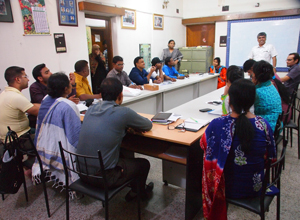
HFW Dhaka Office staff in a meeting
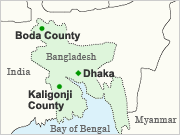
We have activities in the capital city Dhaka, Kaligonji County, and Boda County
About Bangladesh
There is a strong image that Bangladesh is one of the poorest countries suffering from floods, cyclones and other natural disasters almost every year. On the other hand, it is also dubbed “The Golden Bengal” due to the rich spread of rice ears during the harvest season. Its people’s optimistic nature to overcome adversity is a strong foundation of the country.
In 1971, Bangladesh has won the war of independence from Pakistan. Its size of land is about the same as Hokkaido Island in Japan but its population exceeds that of Japan, resulting in nearly threefold population density of Japan. Many foreign capital enterprises recognize the country’s labor and market, expanding their business in the country. In recent years, Bangladesh has accomplished outstanding economic growth mainly in export of garments
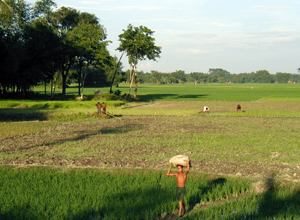
Rice paddies spread on the fertile land
The background of HFW activities and issues to be solved
In the shade of rapid economic expansion, the country suffers from social strains such as environmental damages and widening disparities. Existing laws are insufficient to protect people’s lives, the country’s environment or the right to food. In rural areas, many residents are small-scale farmers, and the costs of chemical fertilizers, etc. are burdening the family budgets. Also, the status of women is low, and large part of them are poorly fed. They follow their parents’ decision to get married in their teens, and take on heavy labor with small amount of food even when they are pregnant. Their medical checkup rate is low, causing miscarriages and low-weight newborn babies.
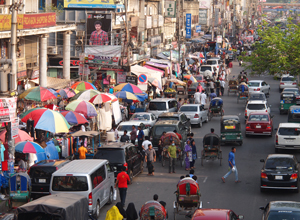
Traffic jam is a social issue in urban area due to high density of population
Four activities to foster joy in eating -Bungladesh-
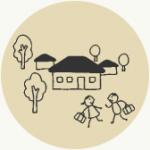
Developing communities
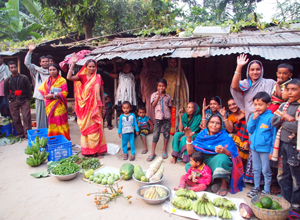
Support organic farming. Sell by local people.

Changing the system
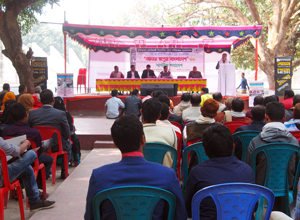
National conference of “Vision 2021 Forum” for ending hunger by the year 2021.

Raising awareness
For easy understanding of locals, publish a booklet on Right to Food in Bengali. Also convey the importance of “the Righto to Food” through awareness raising events.
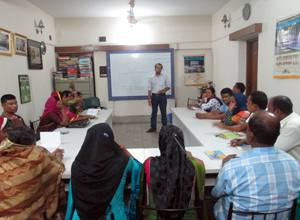
Trained facilitators selected among villagers on Right to Food.
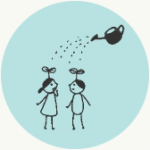
Youth Development
456 youth from 28 units in 3 areas are active. Hold meetings for International Youth Day, Drug Eradication Day etc., and conduct advocacy activities on youth-related policy and livestock projects for income generation.
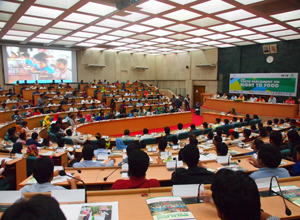
Hold youth mock parliament

